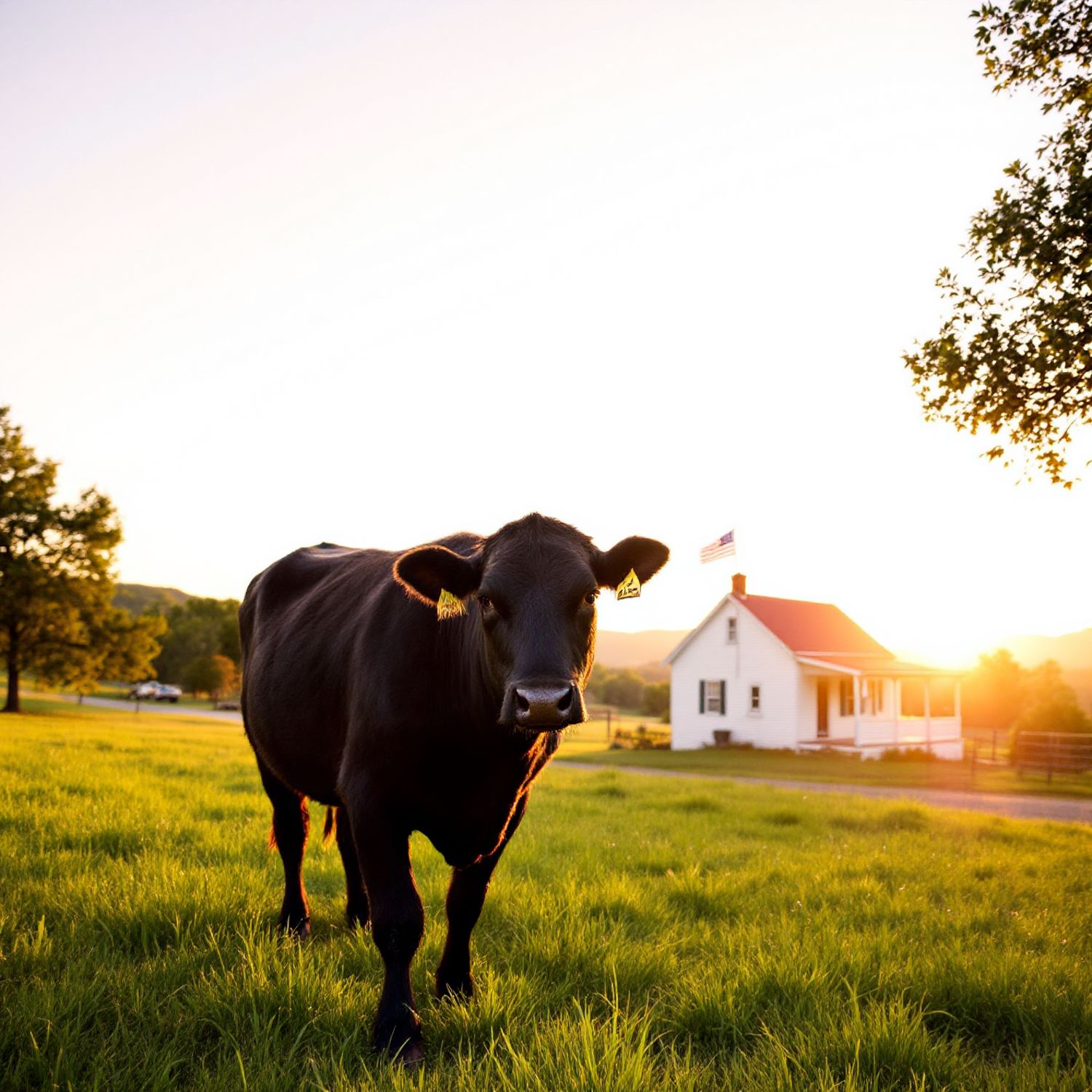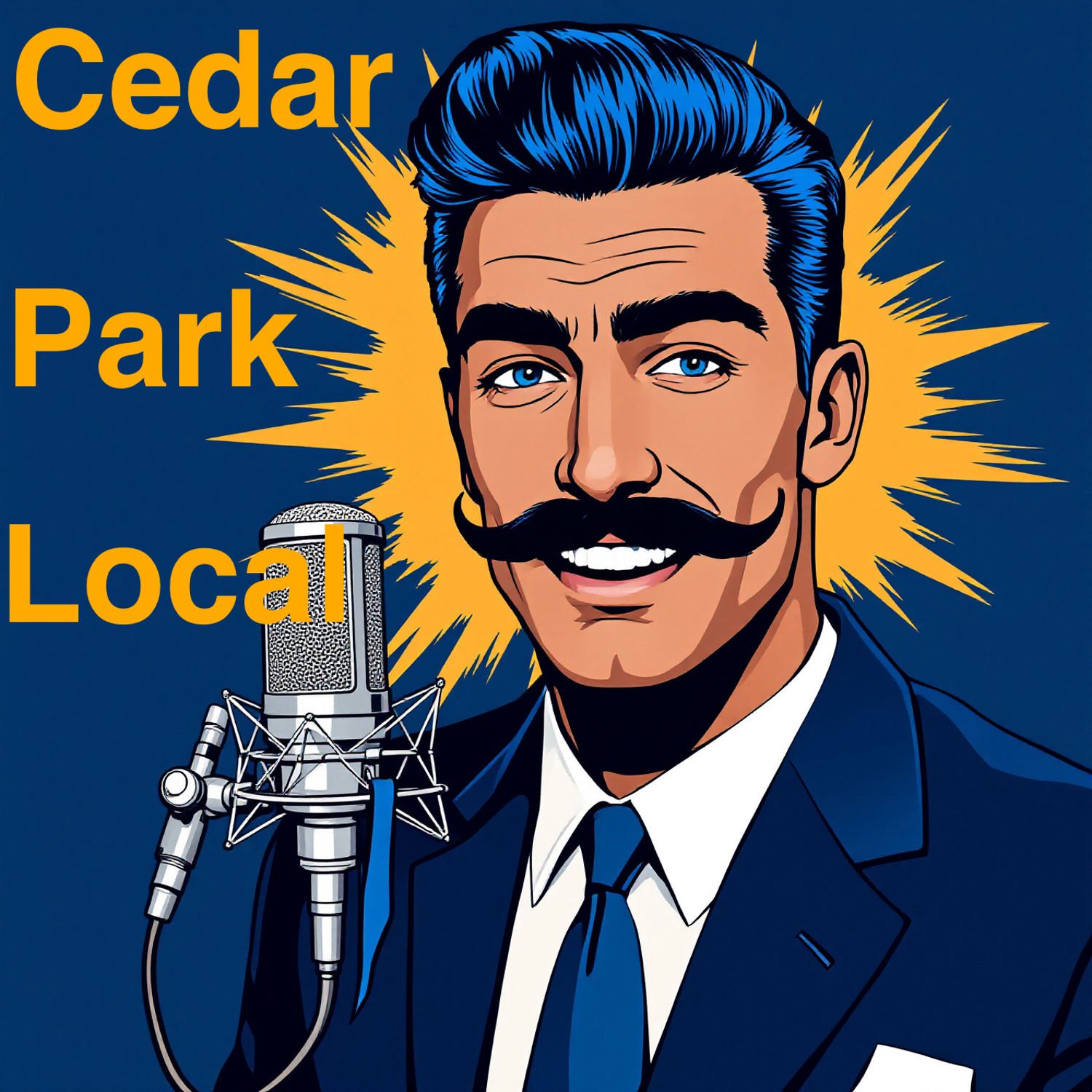07 October 2025
From Pasture to Plate: BrangusBest and Producer‑Only Farmers Market - E29

https://brangusbest.com/
https://texasfarmersmarket.org/
AI generated (not bad):
In this episode, I share my recent deep dive into buying truly local, grass-fed and grass-finished beef after a visit to the Texas Farmers Market at the Farmers’ Market on Bell. I talk with Laura Hansen from Brangus Best, a ranch between Llano and Brady, and unpack what a producer-only market means, why inspections matter, and how a 150-mile sourcing radius balances urban density with access to regional producers. I also compare taste and texture differences between pasture-raised beef and conventional feedlot meat—especially the flavor and feel of the fat—and walk through practical buying options from Brangus Best, from sixteenth and eighth shares up to a quarter cow, including clever delivery and freezer solutions. We run the numbers on cost-per-pound, discuss how bulk buying can bring premium cuts closer to everyday prices, and consider how eating smaller portions of higher-quality food can be both sustainable and health-promoting.
To wrap up, I offer some actionable steps for getting started: pick one achievable change, whether it’s skipping the drive-thru or planning a bulk buy with friends, and build from there. If nothing changes, nothing changes—so start where you are, support transparent producers, and let better food do its work.
We grass feed and grass finish our cattle in open pastures. We do not pin our cattle to give them grain. We don't grain finish. Our cows eat grass because grass is the natural food for a cow. Grain is not a natural food for Well, I went to, the farmer's market on, on Bell
[00:00:20] Unknown:
Our beef is all natural. This past Saturday and got a got a good bit of, understanding from, I think Laura Hanson. What have we got here? Yeah. Of, Brangus Brangus best, beef. That's a ranch between, Llano and, Brady. Almost smack dab in the middle of Texas. And that, so what's interesting is that farmer's market on Bell is, operated by texas farmers market, .org. So I started looking into them, and it's a very interesting organization based on what I'm gathering from their website. It is, what did they describe it as? It's a producer only farmer's market. I'll read off their website here. It is a market at which, producers, their family members or employees are permitted to sell direct to the consumers, Items that they have themselves produced.
So it's not, you're not reselling. You can't you can't, sell somebody else's stuff. So basically, it's, stuff that is made by the people who are there, and they're selling it. And apparently, they get inspected. So How I guess it could be really profitable if one were to get just, your standard commercial products and then, sell them at farmers market prices, which are typically quite a bit higher because you're getting products ostensibly of quite a bit higher quality and therefore kind of pocketing the difference. And that's straight up fraud.
Now, as I understand from speaking to Laura that their, production radius is 150 miles, which is kind of big for, for what I had sort of imagined as buying local. But then again, living, right next to living within a large metropolitan, urban area, it's gonna be unlikely that one is able to get all their food from within, like, 20 miles or something like that. It's just too dense here, and there isn't enough, you know, surface area. There's enough ground to feed all these people within 20 miles. So either I have to move away from the the dense urban center or, expand the boundary within which I'm willing to have my food travel. So so, I mean, luckily, the Texas Farmers Market, people have kind of figured that out, and they've come up with this formula. And and, kudos to them. Let me see who's the okay. So the founder was, Carla Jenkins, and and she's a fun fact for her. She's an avid bird watcher and scuba diver. Well done. So thanks to, Carla for setting this up. She she's she and her people have done the and are doing the work of kind of figuring out the radius and doing the inspections.
I don't know how rigorous the inspection is, but I imagine it's, having a farm or a ranch or an orchard or something like that is probably not easy to fake. So texasfarmersmarket.org. Texas farmers market is plural. Texasfarmersmarket.org. So I was talking to, Laura Hansen of, Brandon's Best, and I've I've bought some of their stuff and tried it and have had good enough experience to, want to pursue it some more. It is it's expensive. This is grass fed, grass finished, grass raised. These are just cows living like cows in a big field, eating what's on the ground. And, and that is way more expensive than cows sitting shoulder to shoulder in a feedlot eating grain, which is, not their normal food.
So you end up with a very different, very different product. And my, I so there is a noticeable difference in texture taste and in their in their product and the store bought stuff. Absolutely noticeable. And the most noticeable thing I found is what the fat tastes and feels like, the texture of the fat, the smell of the fat, the taste of the fat, it is a it is significantly different than the fat on the feedlot cows, and and it's better. And it's I have a particular taste for processed foods and and sort of fake stuff, and, you know, perhaps I'm just willing to listen to my body when it gives me feedback. And if I eat a Twinkie, it's, it feels like I've eaten, you know, a bucket of asphalt.
But but, so so this stuff settles well. Smooth. No problems. If, if if if you've ever experienced indigestion or, you know, whatever you ate didn't settle well, it's it's what you ate. It's it's just the substance that you consumed almost always is the problem. I found that the Brangus best beef was, settled, very well. So let me go to the website. Take a look here. Brangus, where is their Brangus Best? Brangus is a hybrid of Brahman and Angus cattle, and it is spelled brangus, best.com. I'll put, I'll put, the URL in the show notes. Brang Espresso, if and in there, yeah, let's see, under purchased beef, they have a variety of options.
One can buy, quarter of a cow, eighth of a cow, sixteenth of a cow, and they'll ship you all this stuff. They ship you a freezer, apparently. Quarter delivered meat plus freezer, $2,000. So they give you a quarter of a cow and a freezer to put it in. And, and if you don't have a freezer, no problem. I saw this at the stand when I was speaking to Laura about it. You can purchase the cow and or whatever portion of of an animal, and they will, she can coordinate with you via text, and she'll have however amount of it you'd like ready for you at the farmers market on Saturday morning. So you can get the benefits of purchasing in bulk, and the deliveries will be in, in segments that fit your lifestyle. So I thought that was a really great, idea.
So as far as cost, if you want the fancy steaks, you're looking at about $30 a pound, which is what you would pay for high end, aged, steaks. And, and if you go with more regular meats, it's about $16 a pound is what you would end up with if you get a variety of meats. Different cuts and and just, you know, just a bunch of cow. And, so that's the sort of calculus I'm trying to do now is to find at what, at what rate I can make $16 a pound work and and if that's sustainable. And how much meat can I eat? Let's see. Eighth of a cow. Let's read this real quick. Ribeye, New York sirloin, fajita steak, hamburger, stew meat, chuck roast.
So sixteenth of a cow, you get no rib eye, but you get New York sirloin, hamburger, stew meat, chuck roast, rump, and ground beef, seven pounds of it. So let's see. I think ground beef comes out to ground beef is eight packages. So eight pounds for a $125. Quick math. That's, so that's $15 a pound if you just wanna buy $16. It's $16 a pound for ground beef if you're only buying eight pounds at a time. You can get the same price for other cuts of meat if you're buying large and bulk stuff. That's $8. So $16 a pound. And if you're eating a quarter pound of beef, $4 worth of beef, if you get a quarter pound of it in a meal.
And, you know, that's a high quality nutritious meat, you know, throw in some, cow liver and see what, see what your, you know, health looks like. That's really the calculus you gotta make is to find out if you can afford to eat healthy. At at the end, you just might eat less. You're eating less of good food, and before you know it, you're, trim and healthy. What a what a novel idea. I think, that wraps it up for this, episode. I'm going to see if I can dig up some, other stuff on Bring It's Best specifically and the farmer's market in general, and see if I can throw that stuff in.
You know, the secret to getting ahead is getting started. So if you got plans for making yourself healthier, pick something that's achievable, you know, cut out drive thrus and then maybe cut out eating out, whatever. Just pick pick something you can do, stick to it. If nothing, changes,
[00:11:04] Unknown:
nothing changes. Grass finished. So cattle in open pastures. Pick something. In our cattle to give them Make it happen. You don't grain You can do it. Our cows All the best. Grass because grass natural food for be water, my friend. Grain is not a natural food for a cow, and then that cow would not be a natural food for you to eat. Our beef is all natural. No hormones, no steroids, no antibiotics. Grass fed beef is better for you. Compared to conventionally raised meat, it is five times higher in omega three fatty acids, two times higher in conjugated linoleic acid, it's higher in vitamins A and E, and higher in antioxidants.
It is very lean and low in fat, which means it cooks faster than conventionally raised meat, and it tastes so much better. You can buy a whole or half cow for custom butcher. The way that works is we deliver the cow to the butcher, and you do a cut sheet specifying how you want your meat cut and packaged. It's a USDA inspected facility that practices humane slaughter. They dry age the meat for two weeks, then cut and package it, and freeze it. You then go pick up your meat from the butcher. The meat is in a vacuum sealed bag, so it will last in your freezer up to a year. You can also buy smaller quantities of meat. We sell quarter or eighth of a cow, various sizes of family packs, and individual cuts by the pound.
The meat goes from our ranch direct to your table. We ship from our web page by UPS overnight with insulated boxes and freezer gel packs. When you buy local meat from your local rancher, you're supporting your local economy. The meat at the grocery store is not required to be labeled
